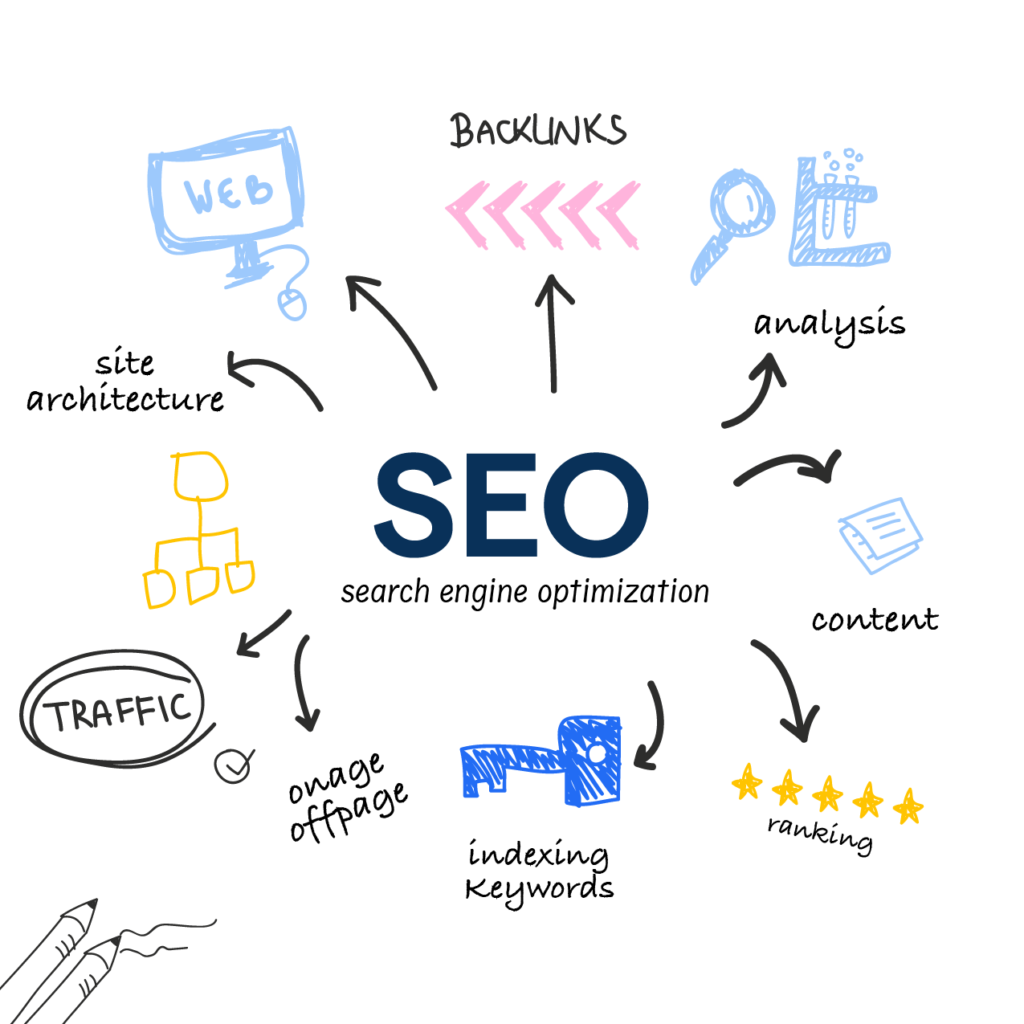Search engine optimization (SEO) has become one of the most important elements of digital marketing.
In an online world where visibility can make or break a business, ranking well on Google can lead to steady traffic, brand awareness, and sales.
Many businesses, especially small and mid-sized ones, turn to SEO companies for help navigating the complexity of optimization.
But are SEO companies actually worth the investment? The answer depends on what kind of company you hire, your goals, and your willingness to understand what SEO really involves.
What SEO Actually Is

SEO is the practice of improving a website so that it ranks higher in search engine results pages (SERPs) for relevant keywords.
It includes a wide range of activities:
- Technical SEO: Optimizing site speed, mobile performance, crawlability, and site architecture.
- On-page SEO: Structuring content, meta tags, and internal linking for better keyword relevance.
- Off-page SEO: Earning backlinks, citations, and mentions from reputable external sources.
- Content strategy: Developing high-quality, useful content that satisfies user intent.
- Analytics and reporting: Tracking what’s working and what’s not, using data tools like Google Search Console and GA4.
Done well, SEO builds long-term visibility. Unlike paid ads, the traffic you earn from organic search doesn’t stop when your budget runs out.
However, it can take months to see meaningful results, and that’s where many businesses look to professional SEO companies for help.
What SEO Companies Do (and Should Do)
An award-winning SEO agency like SIXGUN typically performs several key tasks:
- Audit and research: They assess your current site performance, competition, and keyword opportunities.
- Technical improvements: They fix crawl errors, improve load times, and ensure your site meets Google’s standards.
- Content development: They plan and create content around target keywords, often using content calendars and search intent analysis.
- Link building: They reach out to earn high-quality backlinks that improve your site’s authority.
- Reporting and iteration: They track rankings, traffic, and conversions, then adjust strategies accordingly.
The best SEO companies operate transparently, explain their methods, and collaborate with clients rather than promising “#1 rankings” or instant results.
The Benefits of Hiring an SEO Company
1. Access to Expertise and Tools
SEO is constantly changing. Google updates its algorithms hundreds of times a year, and major updates like Helpful Content or Core Web Vitals can completely reshape ranking factors.
An experienced SEO agency keeps up with these trends and invests in on-page SEO tools such as Ahrefs, SEMrush, or Screaming Frog – tools that can be costly for a small business to use effectively on its own.
2. Time Savings
Effective SEO is time-intensive. It requires ongoing keyword research, link monitoring, and content optimization.
Business owners often underestimate the time it takes. Hiring a professional team frees you to focus on running your business rather than managing analytics dashboards.
3. Better Technical Implementation
Many websites suffer from hidden technical issues (broken links, duplicate content, or poor site speed) that quietly hurt rankings. SEO specialists know how to find and fix these issues quickly, often leading to measurable improvements in visibility.
4. Strategic, Long-Term Growth
Unlike short-term ad campaigns, good SEO compounds over time. Once your site earns authority and trust, it tends to maintain strong performance with less effort. Agencies that focus on sustainable, “white-hat” practices help businesses build an enduring online presence.
The Drawbacks (and Real Risks) of SEO Companies
1. Overpromising and Underperforming
Many SEO companies make unrealistic claims – “We’ll get you on page one in 30 days!” – which simply aren’t possible within Google’s organic ecosystem.
True SEO success takes months or even a year. If a company offers guaranteed rankings, it’s usually a red flag.
2. Black-Hat Techniques
Some firms still use outdated or manipulative tactics like buying backlinks, keyword stuffing, or generating low-quality content with AI spam. These methods can produce short-term boosts but risk severe penalties from Google, which could tank your site’s visibility.
3. Lack of Transparency
Clients often don’t understand what their SEO agency is actually doing. Poor communication, vague monthly reports, or generic deliverables make it hard to know whether you’re getting value.
4. Cost vs. Return
SEO services can be expensive. A decent agency might charge anywhere from $1,000 to $5,000 per month for ongoing optimization.
For small businesses without a clear strategy or measurable goals (like conversions or leads), the ROI can be disappointing.
5. SEO Isn’t a Silver Bullet
SEO can bring in traffic, but it can’t fix weak branding, poor user experience, or bad products. Some businesses spend thousands on optimization without improving their conversion rates, meaning the problem wasn’t visibility, but what users found after clicking through.
When SEO Companies Are Truly Worth It
SEO companies tend to provide strong value in the following situations:
- You operate in a competitive industry (like law, finance, healthcare, or e-commerce) where ranking well can produce high-value leads or sales.
- You lack in-house expertise and need consistent optimization beyond what your team can handle.
- You’re looking for sustainable, compounding growth rather than quick wins.
- You can afford to invest for at least six months before expecting a return.
In these cases, hiring an experienced SEO company can deliver excellent ROI, often outperforming paid advertising over the long term.
When You Might Be Better Off Doing It Yourself
If you run a small, local business with modest online competition (for example, a local café or plumber), hiring an expensive agency might not make sense.
Many local SEO fundamentals (like claiming your Google Business Profile, gathering reviews, and maintaining accurate citations) can be done in-house or with a freelancer.
Additionally, platforms like Wix, WordPress, and Squarespace now offer built-in SEO tools that make basic optimization more accessible.
Learning the basics of keyword research, content creation, and link outreach can go a long way for a smaller site.
In fact, DIY link building can be one of the most effective ways to improve visibility while keeping costs low.
For some, the best middle ground is consulting-based SEO: paying for strategic guidance or audits rather than full-service monthly retainers.
This approach gives you a roadmap to follow without a long-term contract.
How to Choose a Good SEO Company
If you do decide to hire a firm, choose carefully. Look for:
- Transparent reporting: They should clearly explain what they’re doing and why.
- Proven results: Ask for case studies or client references.
- White-hat practices: They should follow Google’s Webmaster Guidelines and avoid shortcuts.
- Customized strategy: Avoid one-size-fits-all packages. Your business, goals, and audience are unique.
- Clear communication: The best agencies educate their clients rather than hiding behind jargon.
The Bottom Line
SEO companies can provide real value, but not all do. The industry has a wide range of quality, from expert consultants who deliver measurable growth to shady operators who sell smoke and mirrors.
The key is understanding that SEO is a long-term, data-driven process, not a magic trick.
For most growing businesses, partnering with a reputable SEO agency can be a smart investment that saves time and accelerates results.
But for smaller businesses or those with limited budgets, learning the fundamentals and handling SEO internally can often achieve 80% of the results at a fraction of the cost.
In the end, the true value of SEO – whether handled by an agency or in-house – lies not just in ranking higher, but in building a trusted, visible, and useful presence online that attracts and retains real customers.
Recommended posts:








